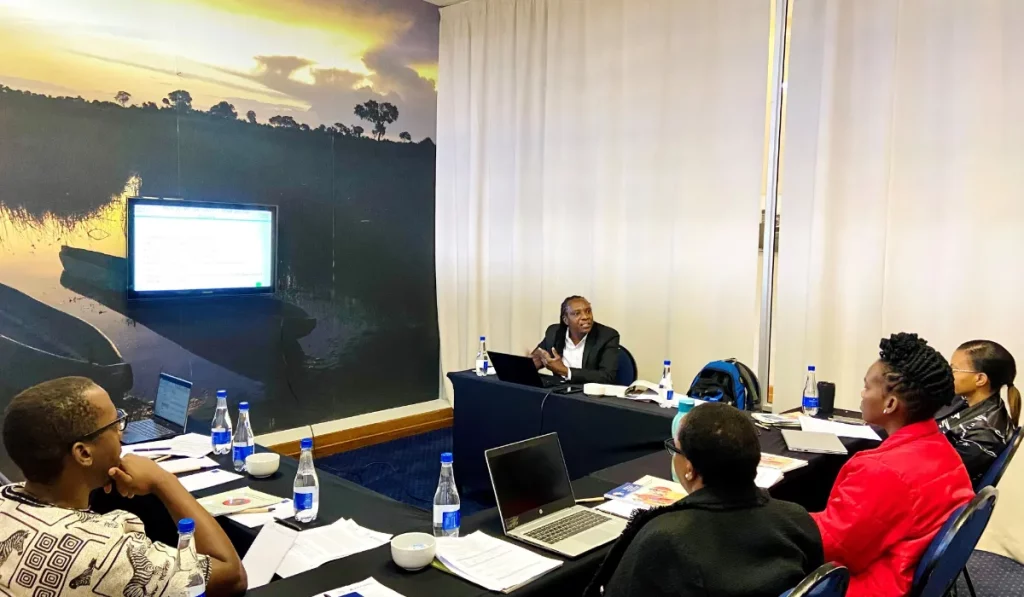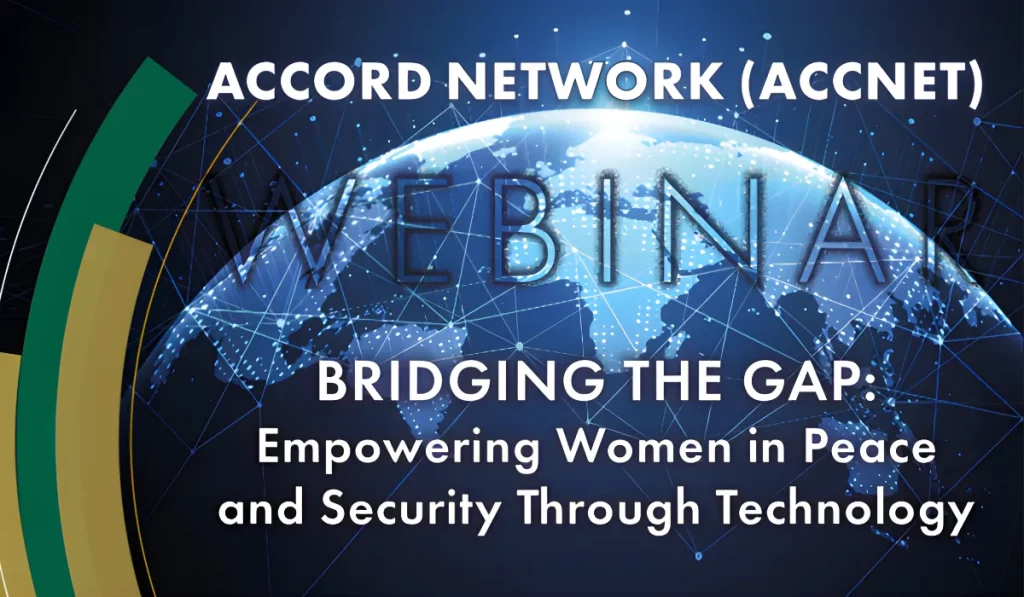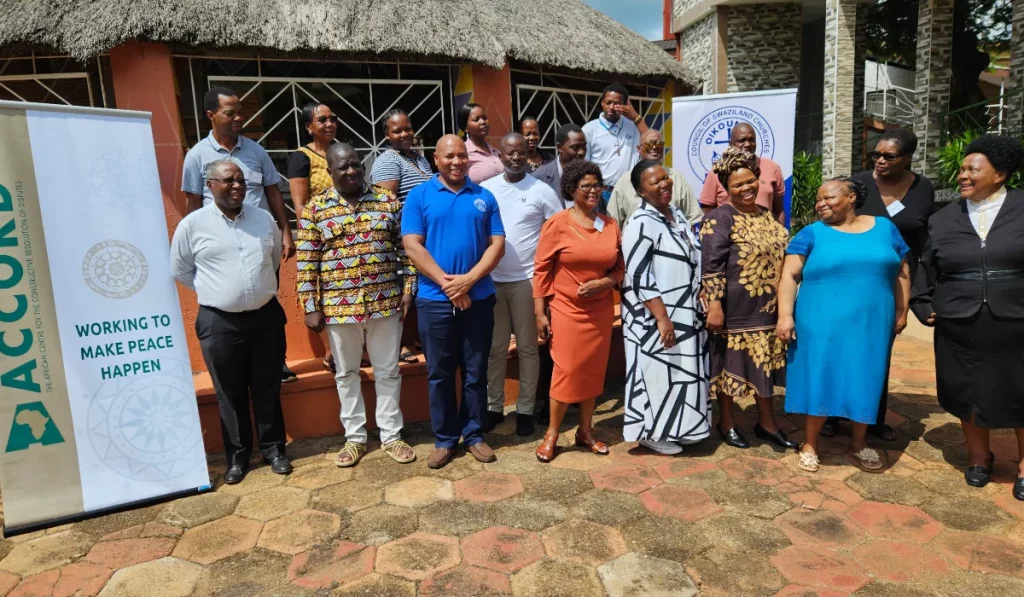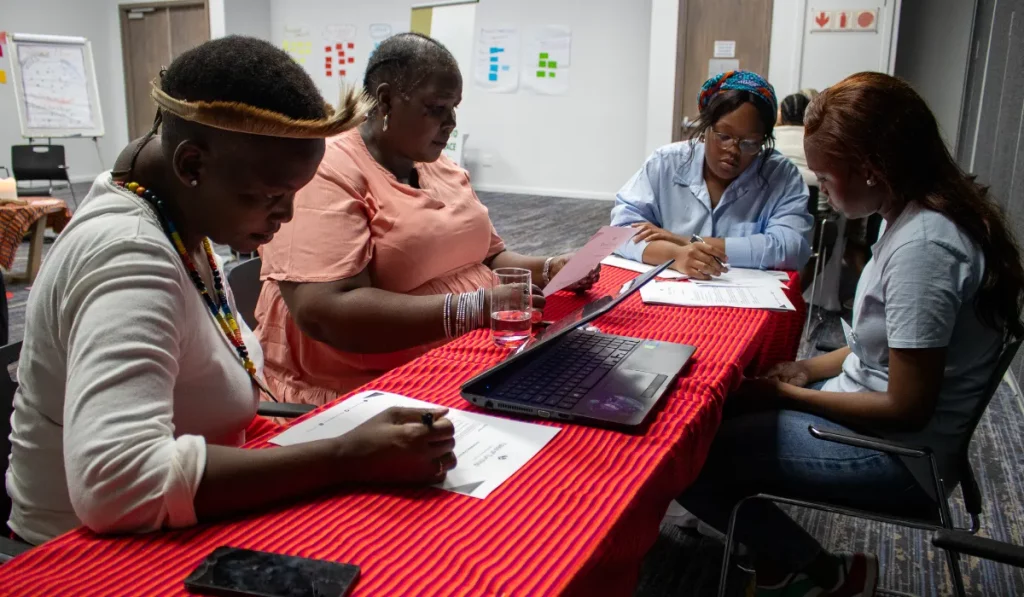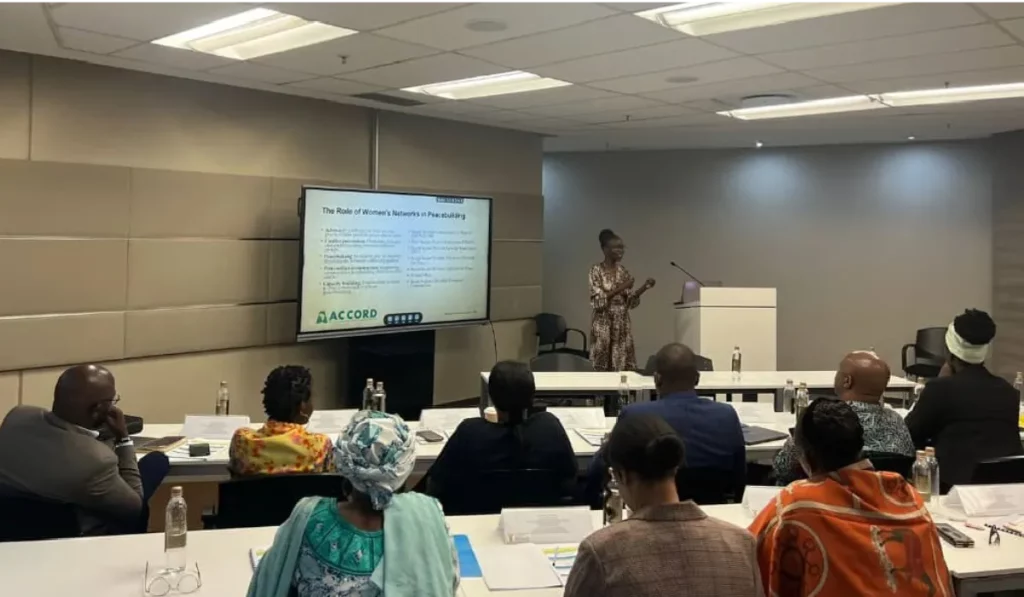Increasingly UN Member State discussions are moving away from linear conceptions of a “transition from peacekeeping to peacebuilding” to focus on the “nexus between peacekeeping and peacebuilding,” a shift that is reflected in the 2011 report of the Special Committee on Peacekeeping Operations (A/65/19). In 2011, one of the focuses of ACCORD’s Peacekeeping and Peacebuilding Units has been to increase the understanding and reflect on the linkages between peacekeeping and peacebuilding, and various activities and publications have been developed to achieve this overall aim.
In October 2011, the Training for Peace in Africa (TfP) Programme within ACCORD’s Peacekeeping Unit, in partnership with ACCORD’s Knowledge Production Department, published a special edition of ACCORD’s flagship publication, Conflict Trends, focusing on the nexus between peacekeeping and peacebuilding. As such, this special edition aimed to unpack and provide clarity on some of the key questions and issues related to the peacekeeping-peacebuilding nexus and how it impacts peacekeeping operations and the larger contexts in which they operate. The magazine has been since widely utilised as a source for practitioners and academics in the attempt to better understand this crucial emerging issue for peacekeeping and peacebuilding.
Furthering ACCORD’s work on better understanding and practicing the nexus between peacekeeping and peacebuilding, ACCORD partnered with the United Nations (UN) Department of Peacekeeping Operations (DPKO), the Norwegian Institute of International Affairs (NUPI) and the Norwegian Peacebuilding Resource Centre, in the organisation of a seminar entitled “Enhancing the Peacekeeping-Peacebuilding Nexus”, from 25-26 October 2011, in Oslo, Norway. The seminar focused on strengthening the contribution of UN peacekeeping to processes of peacebuilding, particularly in line with the progress has been made in better capturing the complexities of building peace. As such, the seminar created an opportunity for leading researchers in the peacekeeping and peacebuilding fields to interact with UN and other policy makers on an issue of particular relevance, with a view to informing and enriching their future research on this topic. Apart from several colleagues from the UN, the World Bank, the OECD and the Norwegian Ministry of Foreign Affairs were also present, as was researchers from the Argentina, Brazil, Canada, Denmark, Germany, Ghana, India, Indonesia, Nigeria, Norway, Netherlands, South Africa, Sierra Leone, Sweden, the United Kingdom and the United States.
As part of this process, ACCORD realised also the need of furthering the discussion and understanding of he nexus on how it impacts on the people that are directly involved in the peacekeeping and peacebuilding field. In that context, and with the objective of generating of this process from a field mission perspective, TfP/ACCORD and ACCORD’s Peacebuilding Unit partnered in organising a Forum in Liberia that was aimed at unpacking the nexus in the country, and its perspectives for future implementation and interactions. The event, entitled Forum on Peacekeeping-Peacebuilding Nexus in Liberia, was organised in Monrovia, from 28-29 November 2011. The forum included participants from various sectors of Liberian society, including members of civil society, UN peacekeeping (UNMIL), UN Country team, government and others. It was clear in the event that the discussion is very timely for Liberia, particularly in the process that the country is currently at of drawdown of peacekeeping mission and increased focus on its peacebuilding process.
All of those activities helped ACCORD in supporting the strengthening of the nexus between peacekeeping and peacebuilding. ACCORD expects to continue working on this issue in 2012, focusing in particular on research and policy development aspects of the matter.



